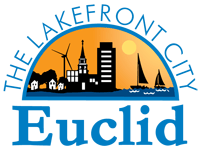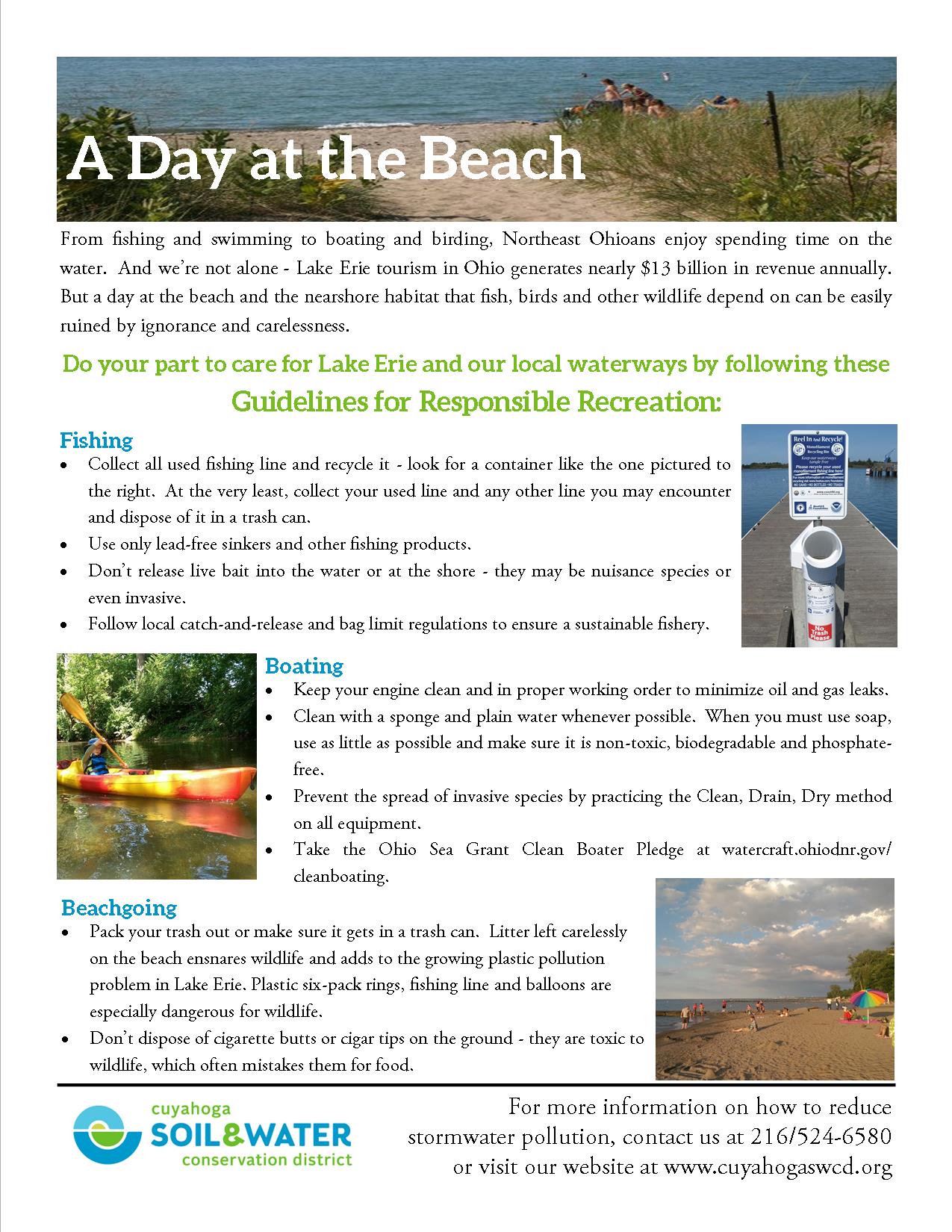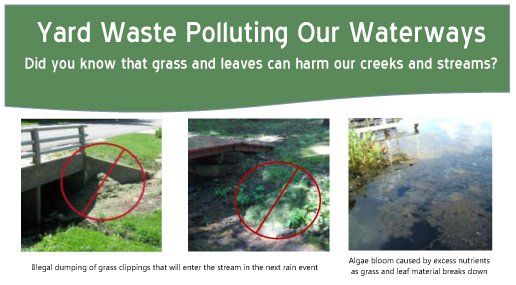Clean Storm Water Starts at Home
Public Service Menu
City Departments Menu
Storm Water Awareness from The City of Euclid Ohio on Vimeo.
Did You Know???
Located at the lakefront are storm sewer outfalls that discharge water into Lake Erie during a storm. These outfalls are connected to the street storm drain that may be in front of your home. This water reaches the lake without being treated for pollutants.
We Need Your Help!!!
At Your Home.
- Don’t dump car fluids or other chemical into these drains.
- Watch for “driveway rainbows” when it rains, this may indicate a leak coming from your car that needs to be repaired.
- Wash your car on the grass, not the driveway.
- Keep the drain free of leaves and debris.
By The Lake.
- Report if you see discharge from a storm sewer outfall during dry weather. This may indicate someone illegally dumping oil, old gasoline, coolant, or other chemical substance down the nearest storm sewer catch basin at some location in the City.
The following people should be contacted if you suspect an illegal discharge:
- Daniel Knecht, CMS4S (216)-289-2701
For more information check out Steer Clear of Pollutants from Cuyahoga Soil and Water Conservation District.
The City of Euclid proudly supports the efforts of The Cuyahoga Soil and Water Conservation District, and the Euclid Creek Watershed Program in their efforts in promoting storm water management and conservation.
- Green Isn’t Always Good Be Wise When You Fertilize.
- Reimagining Your Lawn: How YOU can have a Healthy Lawn that Promotes Clean Water and Enhances Wildlife Habitat.
- The Importance of Native Plants in your garden.
- Trees provide many services beyond the beauty and curb appeal they lend to streets and properties? Check This Out! and This.
- The City of Euclid has Downspout Disconnect legislation in place (Ordinance 1755.20 (b),(c)).
- And Cuyahoga Soil and Water has some great suggestions for rain barrels and other diversion options. like rain gardens.
Few, if any, property owners think it’s acceptable to dump tires, machine parts, plastics and other unnatural trash into our waterways. But many still believe it’s okay to deposit organic material like leaves and grass onto a streambank, in a storm drain, or into the stream itself.
Well, when it comes to stream dumping, even organic doesn’t “cut it.”
Many leaves will naturally fall into the water, but as homeowners, we should be mindful not to upset nature’s balance. Leaves, grass clippings and pet waste should never be dumped in or even next to a creek, ditch or pond.
Yard waste (grass clippings, leaves, pet droppings, etc.) is the 2nd largest category of all discarded trash. When these materials are put into the stream, they begin to decompose and use up the critical, life-giving oxygen in the water. As a result these streams can become unsightly and release a foul odor. Yard waste can also ‘super-fertilize’ streams and lakes and can lead to algae blooms and fish kills. Furthermore, this excess debris can obstruct flow and clog downstream culverts, leading to localized flooding and erosion problems.
Yard waste should be composted, or set out with the trash according to your community’s yard waste pick-up guidelines. Pet waste should always be bagged and placed in the trash. You can further protect our local waterways by leaving an unmowed buffer strip next to any creek on your property and by planting trees and shrubs on and next to stream banks. This streamside setback helps to filter pollutants from runoff and to protect the streambank from erosion.
You can learn more by calling Cuyahoga Soil & Water Conservation District (216-524-6580) and requesting a free copy of Life at the Water’s Edge: Living in Harmony with Your Backyard Stream.
Remember – clean water starts with you!
To Report a Problem, Request Information or Request Service



